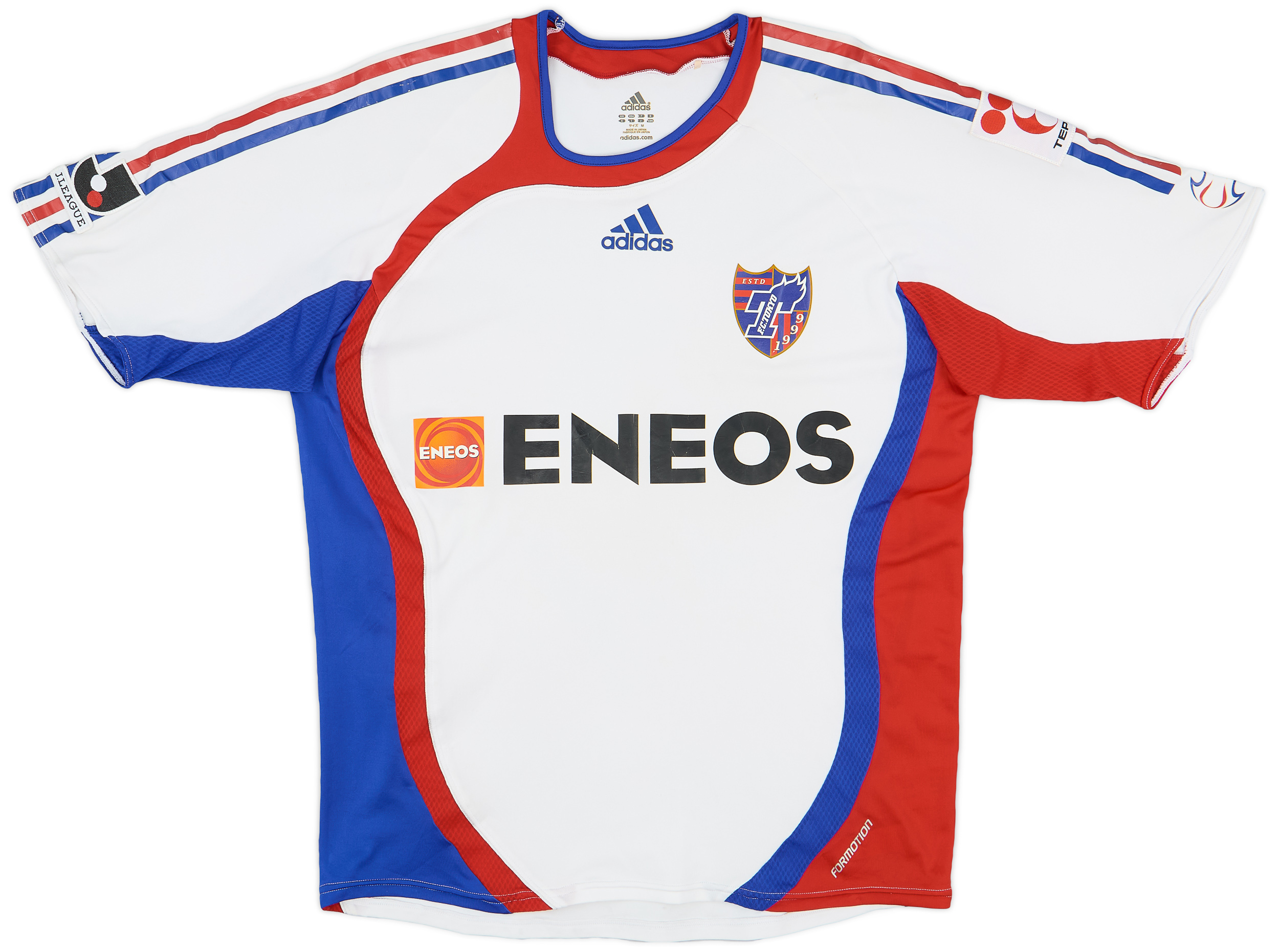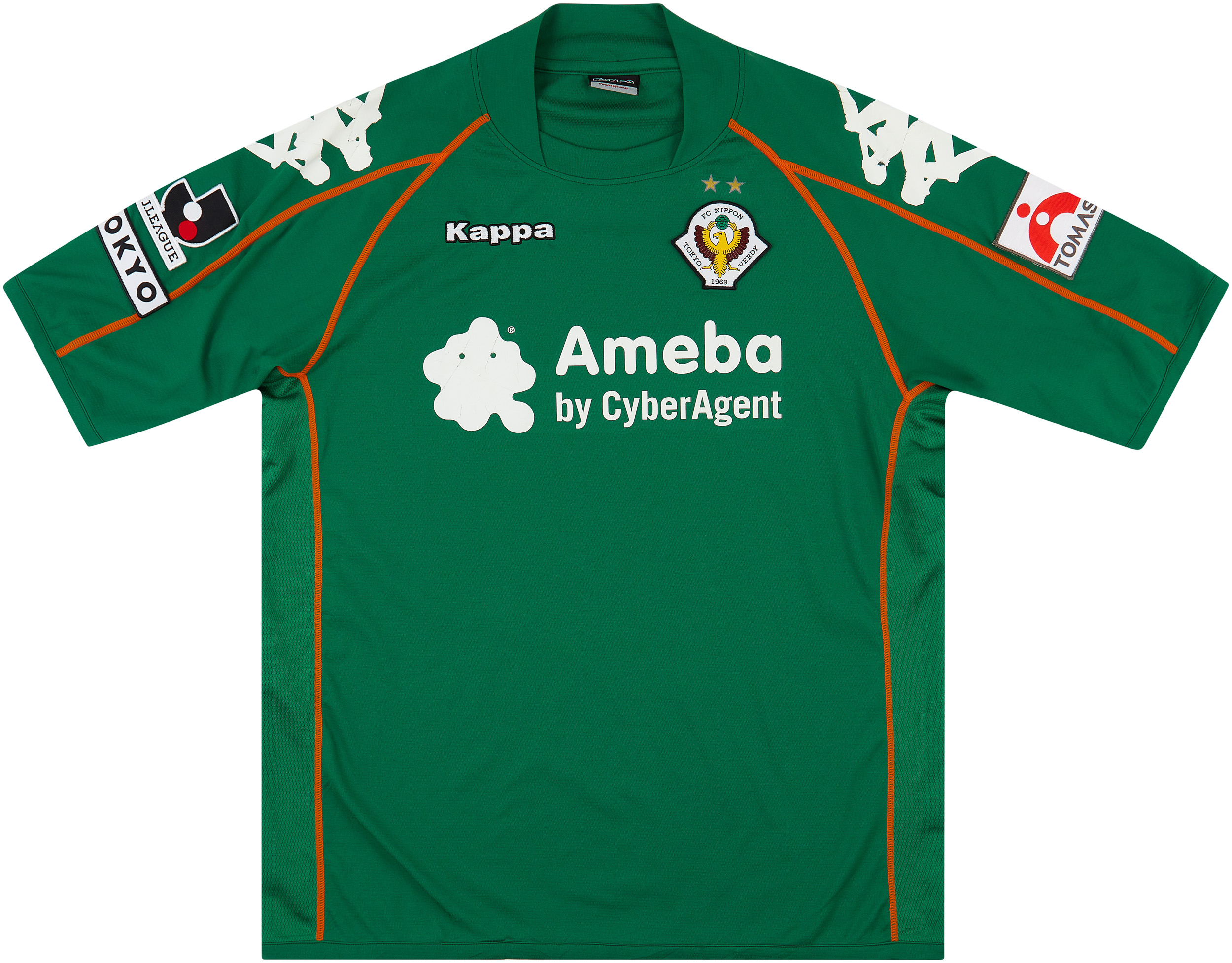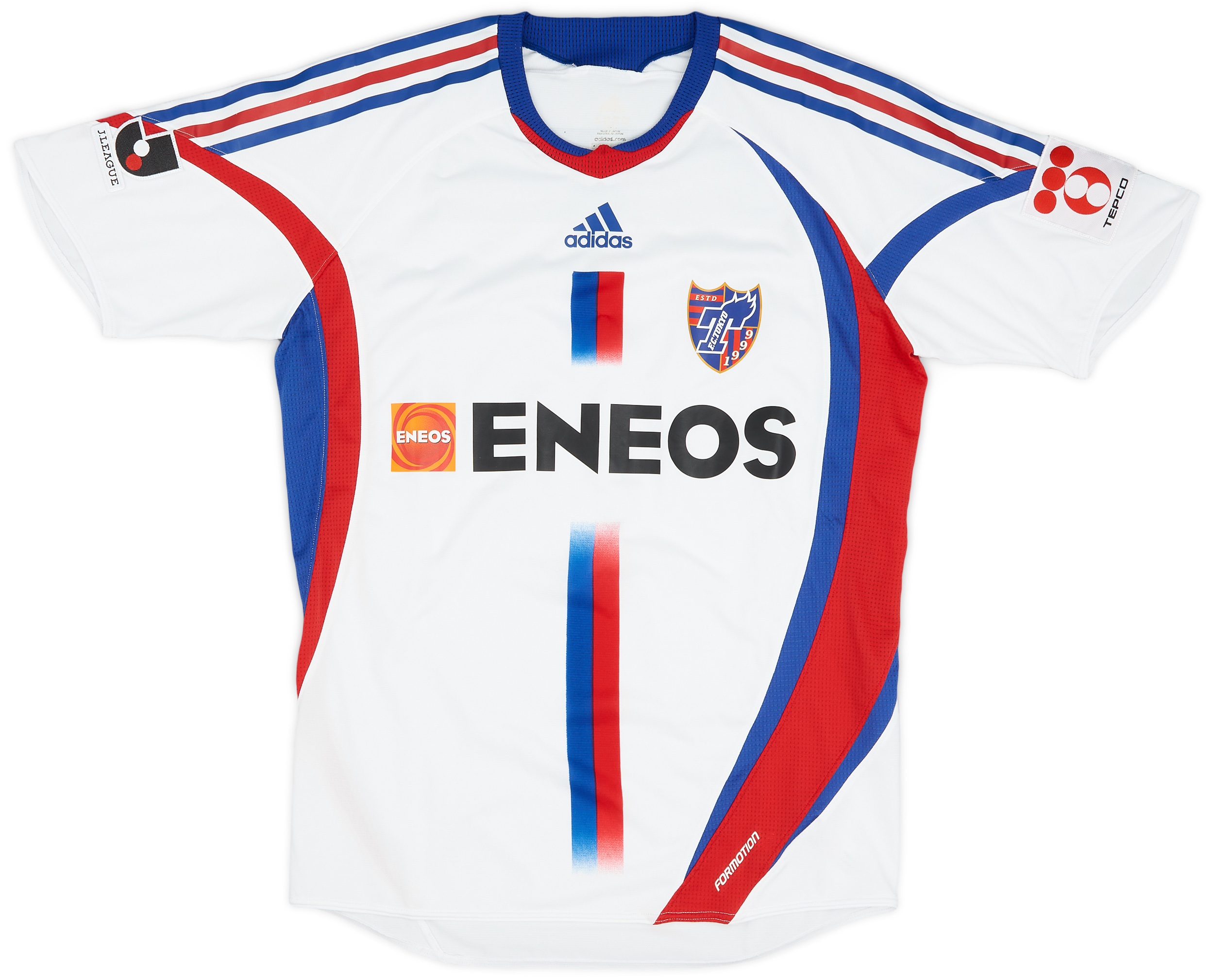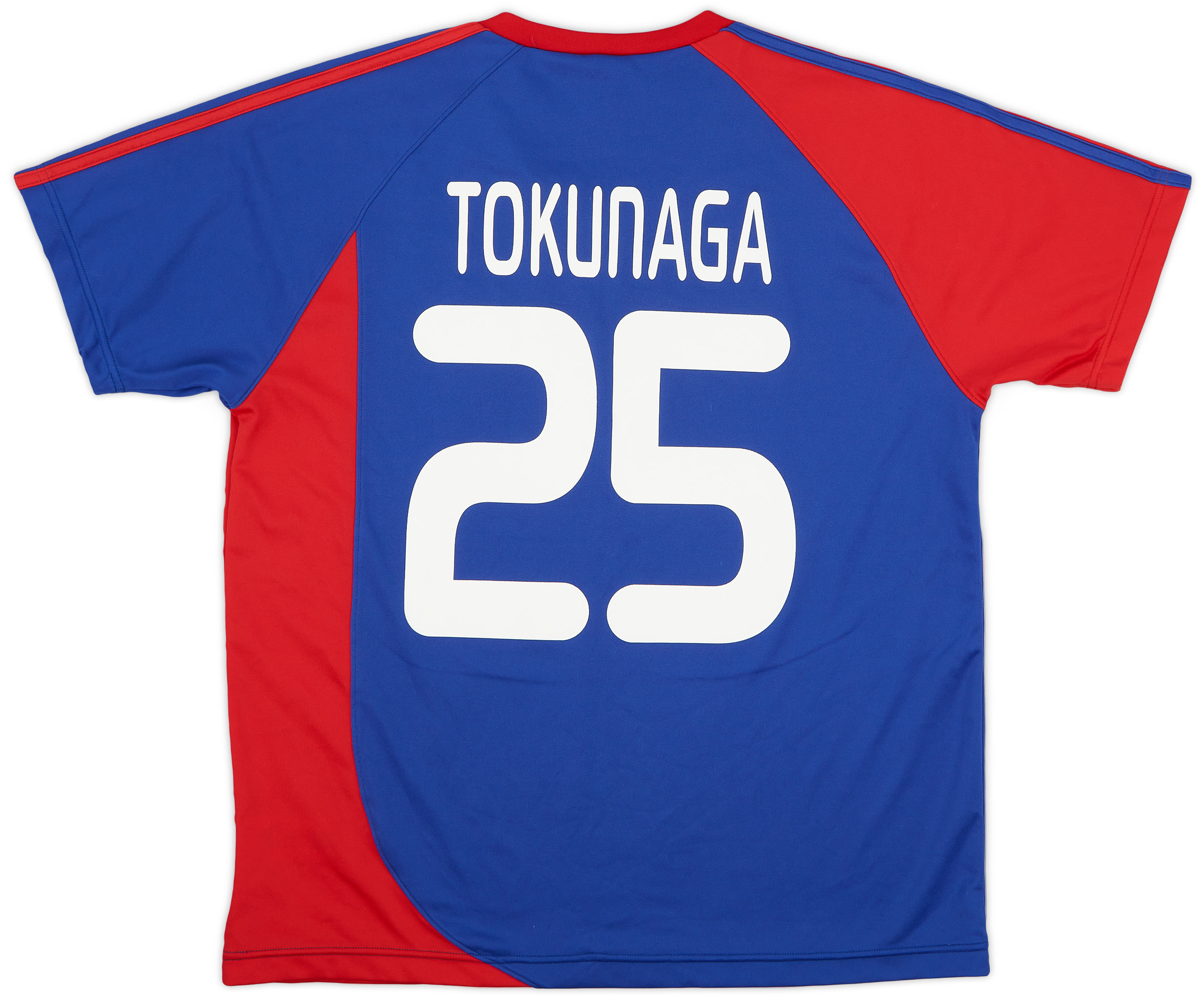Tokyo
Introduction The football club Tokyo, known colloquially as Tokyo FC, is a prominent team in Japanese football, representing the capital city of Japan. With an identity deeply rooted in the vibrant culture of Tokyo and a commitment to excellence, the club has become a cornerstone of the Japanese football landscape. The team enjoys a passionate […]
2010 FC Tokyo Player Issue Home L/S Shirt - 8/10 - (M)
148.99£ - ca: €176
1999 FC Tokyo Match Issue Away Shirt #20
148.99£ - ca: €176
2007 Tokyo Verdy Home Shirt - 7/10 - (M)
118.99£ - ca: €140
2009 FC Tokyo Match Issue Home Shirt #12
118.99£ - ca: €140
2006-08 FC Tokyo Player Issue Away Shirt - 7/10 - (M)
118.99£ - ca: €140
2015-16 FC Tokyo Player Issue Home Shirt - 8/10 - (S)
118.99£ - ca: €140
2007 Tokyo Verdy Home Shirt - 7/10 - (XL)
118.99£ - ca: €140
2011 Tokyo Verdy Away Shirt #12 - 6/10 - (XL)
118.99£ - ca: €140
2008-09 FC Tokyo Authentic Away Shirt - 7/10 - (M/L)
118.99£ - ca: €140
1990s Tokyo Verdy Button-Up Shirt (L)
106.99£ - ca: €126
2013-14 FC Tokyo Home Shirt - 7/10 - (S)
106.99£ - ca: €126
2007-08 FC Tokyo Home Shirt - 6/10 - (S)
94.99£ - ca: €112
2015 FC Tokyo Away Shirt - 8/10 - (L)
94.99£ - ca: €112
2013-14 FC Tokyo Away Shirt
82.99£ - ca: €98
2010s Tokyo Verdy GK Shirt - 8/10 - (S)
70.99£ - ca: €84
2010s Tokyo Verdy GK Shirt - 9/10 - (S)
70.99£ - ca: €84
2008 Tokyo Verdy Home Shirt - 5/10 - (XL)
70.99£ - ca: €84
Introduction
The football club Tokyo, known colloquially as Tokyo FC, is a prominent team in Japanese football, representing the capital city of Japan. With an identity deeply rooted in the vibrant culture of Tokyo and a commitment to excellence, the club has become a cornerstone of the Japanese football landscape. The team enjoys a passionate fanbase and is renowned for its attacking style of play, drawing inspiration from the rich traditions of the sport in Japan. Established in 1999, Tokyo FC has a unique history marked by ambition, growth, and a deep connection to the community it serves.
Club History
Tokyo FC was established as a part of the J-League’s expansion, forming in 1999 following the merger of two older clubs: the Yomiuri Soccer Club and the Tokyo Gas Football Club. This merger sought to unify the footballing efforts in the capital, allowing for a stronger representation of Tokyo in national competitions. In its inaugural season, Tokyo FC managed to impress by finishing in the top half of the J-League table, a remarkable achievement for a newly formed side.
Over the years, the club experienced several ups and downs, including relegation battles and seasons of success. One of the pivotal moments in Tokyo FC’s history came in 2004 when the club secured its first major silverware, winning the J.League Cup. This victory was not only a testament to the team’s dedication and talent but also set the stage for future successes.
Achievements
Tokyo FC has enjoyed a variety of achievements since its inception. The club’s biggest accomplishments include:
- J.League Cup: Winners in 2004, 2009, and 2012, the J.League Cup serves as one of the pillars of Tokyo FC’s trophy cabinet, showcasing the team’s quality in knockout competitions.
- Emperor’s Cup: Tokyo FC lifted the prestigious Emperor’s Cup in 2011, further establishing its reputation in Japanese football.
- Asian Champions League: The club has consistently represented Japan in various continental competitions, with a notable performance in the 2009 edition where they reached the knockout stages.
- League Position: The club has frequently finished in the upper tier of the J.League, reflecting its competitive nature and ambition to challenge for the title. Notably, they finished as runners-up in the J-League in 2004 and 2009.
These achievements highlight Tokyo FC’s prominence within Japanese football and their commitment to continual improvement and competition.
Significant Players and Matches
Throughout its history, Tokyo FC has been home to several significant players who have left lasting impacts on the club’s fortunes. Notable figures include:
- Yuji Nakazawa: A stalwart in defense and captain during one of the club’s golden eras, Nakazawa played a crucial role in shaping the team’s identity and strategy.
- Shuichi Gonda: Regarded as one of the top goalkeepers in Japan, Gonda’s performances have been influential, especially in critical matches.
- Diego Oliveira: The Brazilian forward has been a key player in recent years, contributing significantly to the club’s goal tally.
Landmark matches, such as the thrilling encounters against rival clubs like Gamba Osaka and Urawa Red Diamonds, have often electrified fans and showcased the intense rivalries within Japanese football. The 2011 Emperor’s Cup final against the Yokohama F. Marinos stands out as a significant moment, where Tokyo FC claimed the trophy in a dramatic victory.
Cultural Impact
Tokyo FC’s influence stretches beyond the pitch and into the local culture of Tokyo. The club has played a pivotal role in promoting football within the city, engaging youth through community programs and youth academies. The club’s motto, “We are Tokyo,” embodies a sense of pride and belonging that resonates throughout the diverse neighborhoods of the city.
The passionate fanbase, known for their vibrant displays and unwavering support, contributes significantly to the club’s culture. Matches held at the Ajinomoto Stadium often see a sea of red and white, as fans chant and cheer, creating an exhilarating atmosphere. This strong sense of community and identity has helped cultivate a long-lasting relationship between the club and its supporters.
Conclusion
In summary, Tokyo FC stands as a significant player in the landscape of Japanese football. With a rich history, notable achievements, and a profound impact on its community, the club continues to strive for excellence while fostering a passionate follower base. As they look to the future, Tokyo FC aims to build on its legacy, making an indelible mark on the sport both domestically and internationally. The club’s journey reflects the spirit of the vibrant city it represents, making it not just a football club, but a proud emblem of Tokyo itself.

















